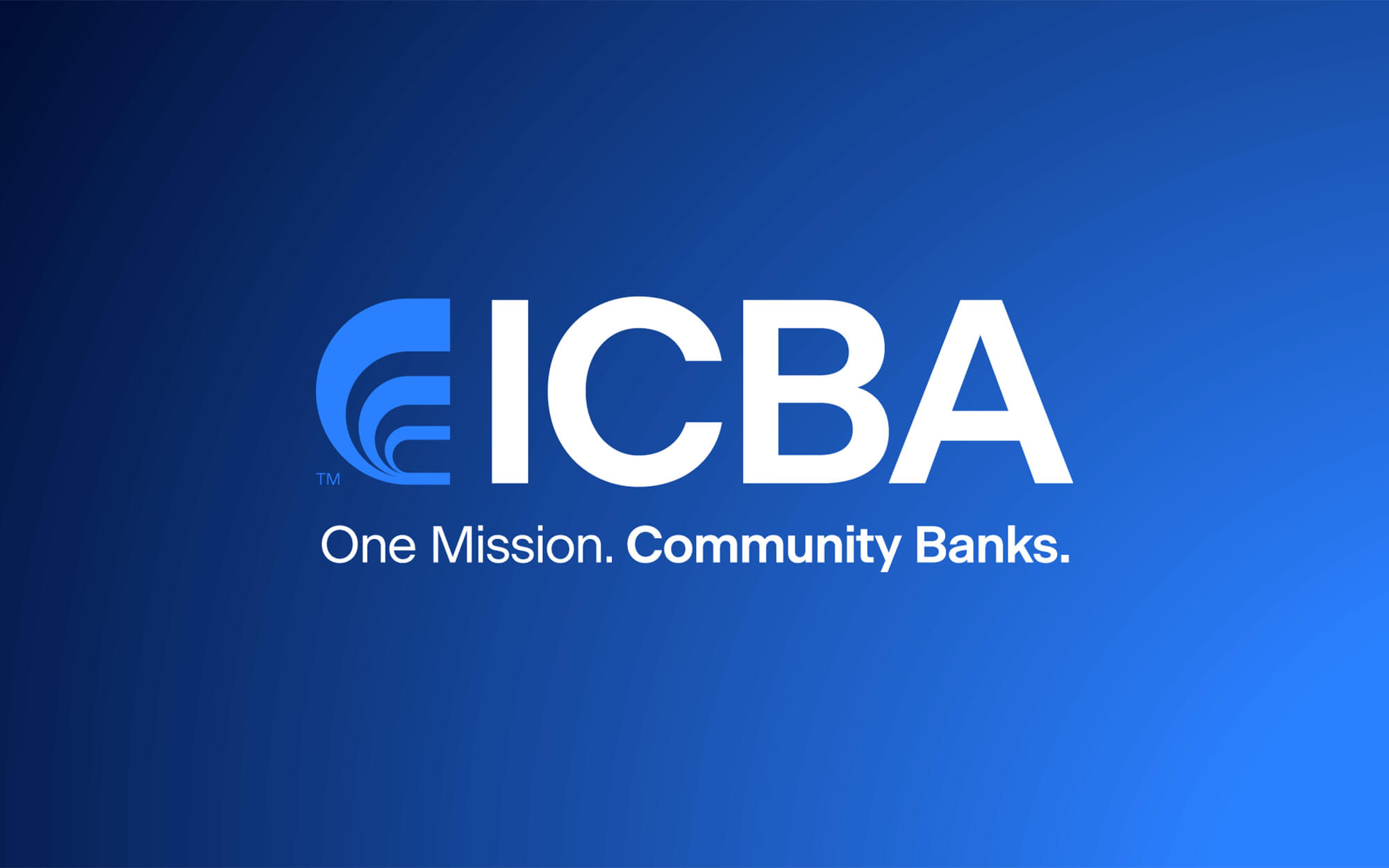As a national association, ICBA helps raise community banking’s profile on a national stage. But equally important are the 44 state community banking associations it’s affiliated with.
“These associations are independent of ICBA, and we both choose to be affiliated with each other in an effort to best serve the community banking sector in that state,” says Aaron Stetter, executive vice president, affiliate and volunteer relations for ICBA, noting that “each state is an independent association, not a chapter of ICBA.”
The decision to affiliate depends on state association interest and the ICBA executive committee’s approval. “In other words, it is entirely banker-driven,” says Joe Schneider, senior vice president of state relations for ICBA.
“State associations must formally request affiliation in a written request that affirms their intent to support the ICBA mission to create and promote an environment where community banks flourish, and they must state their intent to adhere to our policy resolutions, which reflect our core principles,” says Schneider.
“We help each other out, learn what the needs and issues are that impact community banks, and take that knowledge and insight and turn them into advocacy positions, education and services.”—Joe Schneider, ICBA
The difference between ICBA and state associations
What do the state associations offer that ICBA itself does not? Stetter says state associations offer community bankers proximity to local networking and educational events and state-level advocacy. ICBA’s focus is on Congress, the administration and federal regulatory agencies, while state associations focus on the state legislature, state government and regulatory agencies.
“That said, we work in tandem to lobby at the national level and provide grassroots advocacy whenever necessary,” says Stetter. “ICBA’s grassroots strength is greatly enhanced by our partnership with the state associations.”
Often, such associations make it easier for new community bankers to make their mark.
“State associations, in most cases, offer community bankers their first experience with getting involved with a community banking trade association,” says Schneider. “This means learning about why community banking is so important to their local communities, whether small or large, and to the national economy. ICBA drives this message on a national level. It infuses everything we do—advocacy, education, member services and innovation—and the states deliver the same message in the same ways locally and at the state level.”
Schneider adds that state associations provide networking and leadership development opportunities alongside ICBA, and ICBA benefits from that by providing additional rungs on the leadership ladder for those community bankers who are interested in serving and supporting the industry in which they work.
How to work with your state association
Not yet a member of your state association?
Visit icba.org/about/state-association-directory to view ICBA’s affiliated state associations and access their websites.
There are several ways that ICBA member banks can connect with their state associations. “Probably close to 75% of our members are already members of their state associations,” says Schneider.
“Bankers can reach out to me, to Joe Schneider or to their state’s ICBA member relations officer, and we would be happy to make the appropriate introductions,” says Stetter. “We highly recommend that community bankers engage with their ICBA-affiliated association at the state level to protect and enhance the value of their bank charter.”
Both Stetter and Schneider emphasize the importance of ICBA member banks belonging to both ICBA and its state associations. “ICBA and our affiliated state associations complement each other,” says Stetter. “State associations are closer in proximity to the bankers in their state, so they provide localized networking and educational opportunities that complement the opportunities we provide on a national scale.”
“We help each other out, learn what the needs and issues are that impact community banks, and take that knowledge and insight and turn them into advocacy positions, education and services,” adds Schneider.
In addition, Schneider notes that ICBA staff and leadership bankers have the opportunity to connect with state associations' members by attending various events that the associations host throughout the year.
Working together in advocacy
Another benefit of the connection between ICBA and state banking associations is that the state associations have fueled some positive local and national developments that support ICBA member banks.
“For example, ICBA relies on our affiliated state associations to participate and lead Capitol Hill meetings during our Capital Summit,” says Stetter. “This year, we had over 300 Hill meetings, demonstrating our collective strength and resolve to lawmakers. In most instances, these meetings were led by our affiliated state association partners.”
State associations support ICBA advocacy efforts including the Farm Bill reauthorization, closing the industrial loan company loophole and opposition to the Credit Card Competition Act.
In addition, state associations support regulatory advocacy, such as comments on the FDIC’s proposed standards for corporate governance and risk management for certain institutions, pushing back against onerous principles for climate-related financial risk and many more.
Resources such as the ICBA Foundation have aided in state associations’ support of local communities recovering from natural disasters. For example, the Mississippi Bankers Association helped community bankers whose homes were lost during a devastating tornado that swept through the state last year.
Whether it’s regarding state-level advocacy or crisis mitigation, ICBA state associations are designed to bolster the community bank industry in their designated areas. If you aren’t already a member, see how getting involved with yours can make a difference.

